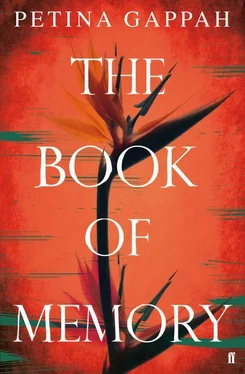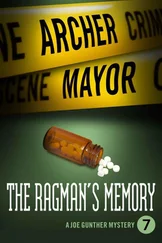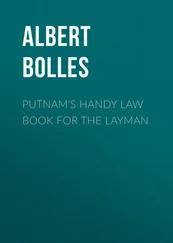There were books here once, Jimmy said. There was a small library of circulating books. But since Synodia’s religious conversion, the Bible is the only book that she will allow. Before that, the guards used to wade through the books that the Goodwill Fellowship sent, to weed out tales of homicide, suicide, crime, politics.
Monalisa once suggested that some of the more qualified prisoners could teach the less educated, as there was so little to do after lock-up.
‘We can have a small library,’ she suggested.
‘Pwlibrary, pwlibrary,’ said Synodia. ‘Who said you are here to get an education? If you are so educated, why are you here? You come here with your English and you think you are special. Let me tell you something. Here I will give you all the education that you will ever need. Here you will feed on education kusvika wazvimbirwa and your stomach bursts from education. Pweducation, pweducation.’
Every time the Goodwill Fellowship donates books to the prison, covering all sorts of subjects, science and history, novels and poetry, the guards sell them. So when Loveness gave me the paper, after all these months, it was all I could do not to snatch it from her. I devoured every page of it. I read the perplexing story of a baby called Kingsize who changed sex overnight. ‘When we put him on his bed to sleep that night, he was a boy,’ his mother said. ‘But when he woke the next morning, we found that he had turned into a girl.’
I read a long opinion piece on what was wrong with the new constitution; I read every letter to the editor on why the country is now ready for the coming elections. I even read the sections that I would normally not have glanced at, like the property and motoring reports. I drank in the technical specifications of the latest Range Rover.
I read the special supplement about a new shopping complex near Warren Park that is operated by a Chinese company. ‘This image shows the magnificent balancing rocks made out of hardened plastic that are exact replicas of the rocks cleared away in the construction of the building,’ an admiring caption said. I studied the congratulatory faces of the Chinese manager, the smiling passivity of the workers in yellow hard hats and blue overalls, and the bonhomie of the fat-bellied minister who had cut the ribbon around a fake rock.
Loveness’s act of generosity is both incomprehensible and alarming. The guards are not supposed to bring us whole newspapers. When we get them at all, the newspapers are always at least a month old — the opposite, in fact, of news. And they are, well, incomplete does not begin to describe it.
The first time that I saw a newspaper here, I thought there must have been some mistake. Parts of it had been cut out so efficiently that when I held up the whole thing, I could almost see through to the blonde hair extensions falling with wild abandon on Synodia’s mammalian graces. Synodia took great pleasure in telling me that the guards cut out all the court news and any reports of crime, so that — her words — ‘You lot will not get any ideas if you ever get out.’
The guards also cut out the politics sections because they do not want us to get agitated. I must concede that this is a fair point. The inaccuracy of your average local newspaper is enough to raise anyone’s blood pressure. They cut out the business news, presumably for the same reason. What’s left are the sports and entertainment sections, the adverts and the classifieds, but even they are not guaranteed to remain, particularly if Synodia is on newspaper-cutting duty.
She applies the scissors with such zeal that we often end up with just the adverts and the classifieds and empty margins with gaping rectangles. The empty spaces hide the news we are not allowed to know, the collapse of the fragile agreement that has held the government together, the coming new constitution to be followed by more elections. And everyday news, such as how many pupils passed their O levels, and by how much the prices have gone up.
But if you read carefully, the classifieds are revealing in their own way. When I saw that the price of baked beans had gone from three million dollars to one dollar fifty, it meant one of two possibilities: the unlikely one, that our vertiginously collapsing dollar and found a way to shoot upwards; or the more likely, and correct, one, that the currency had been changed.
The guards sometimes leave in the occasional headline. ‘President Returns from M’, said a section with a huge rectangular space below it. I suspect that most of the cut-out space was devoted to the President’s image. Returns from Mwhere , I wondered? Given the President’s predilection for travel, it was probably somewhere Mforeign . Malaysia, Maldives, Mauritania, Malta, Madagascar, Mozambique, Malawi.
‘It would be easier,’ I once pointed out to Synodia, ‘to just cut out the bits that we can read and hand them to us in a pile.’
For that bit of wit, Synodia confiscated my Bible for two weeks. She must imagine that it is the ultimate anguish to be without the Good Book. But to make assurance doubly sure, as it were, to make sure that my physical person was punished in addition to the spiritual deprivation she had devised for me, she assigned me to sanitary duty, a polite way of saying that I spent two weeks collecting foul-smelling and bloody pads with my bare hands before piling them into the large metal drum that serves as an incinerator.
Haven’t there been studies that show that, when groups of women live in close confinement, their cycles become synchronised? This is how it feels here, like there are two to three hundred women who are on at the same time.
Once a week, in the evenings, the prisoners on sanitary duty collect the sanitary towels in one bin and lug them to the incinerator behind the Condemn. As we had no gloves, we improvised with old plastic bags, stuffing the repulsive things into the incinerator, where they crackled and burned and sent up a stench that covered our clothes and hair and which we could not wash out because there was no water.
When there is water, it is normal for the women to wash out the blood from the pads before disposing of them. ‘If you don’t,’ Jimmy advised me when I first arrived, ‘Someone is sure to use your blood for something.’ Something being, of course, the witchcraft rituals that everybody here accuses everybody else of. So you wash off the excess blood before throwing it in the bin. That week, there was no water to be had. No water to wash in, no water to flush the toilets. It was not as distressing as it could have been because it has happened far too many times to cause comment.
Jimmy prefers to be the last to get the paper because she likes to pore over the classifieds without worrying about the next person in the line. She laps up the mansions that cost billions and trillions of dollars, occasionally emitting a sibilant sigh of admiration when she finds one that seems particularly impressive. ‘ Inzwaka ,’ she will say to whoever is near her. ‘Mansion available in Ballantyne Park, ten bedrooms, six bathrooms, four en suite. Kidney-shaped glitter-stone pool. Floodlit tennis court. Massive entertainment area. Lock-up garage for six cars. Landscaped garden. Self-standing three-bedroomed cottage. Imported tiles and fixtures from Dubai. Right in the heart of the golden triangle. Must-view.’
She was almost beside herself when she found out that I once lived in a ‘mansion’. ‘Hesi mhani, Memo,’ she said, and spent the next hour asking about it. Jimmy uses the diminutive of my name.
Jimmy Blue Butter does not know that I lived in Mufakose once. No one here knows that part of my past. I have told her very little about myself, but things have nonetheless managed to reach her and the others. I trace it all to Evernice, who seems to know everything about everyone. Within days of any new prisoner’s arrival, Evernice will have found out everything she can about her.
Читать дальше












